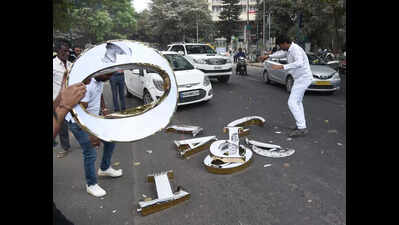Quantum India Summit 2025 in Bengaluru: From heart sensor to cancer care, quantum tech set to redefine healthcare | Bengaluru News

Bengaluru: From simulating cancer at the cellular level to building portable cardiac scanners and creating non-invasive microscopes, quantum technology is steadily advancing from theory to hospital rooms, said experts at the Quantum India Summit 2025 while showcasing how the convergence of quantum physics and AI is powering a new era of predictive, personalised, and safer healthcare.Quantum for cancer and clinical trialsAnupama Roy of IBM Bengaluru highlighted how quantum computing is revolutionising disease research, enabling drug lifecycle modelling at the cellular level using quantum conditional optimal transport. This helps predict drug behaviour and reduce treatment complications, especially in cancer care. “Many cancer patients don’t succumb to the disease itself, but to complications from treatments like chemotherapy. Understanding drug pathways within cells could help mitigate such risks,” Anupama said. She also noted the use of quantum analytics and machine learning to optimise clinical trials by tracking patient behaviour and drug adherence. Quantum sensors for heartWhile quantum computing is reshaping molecular understanding, Pranab Dutta, founder of GDQ Labs Pvt Ltd, explained how using quantum sensors, one can detect ultra-weak magnetic fields generated by the human heart, without needing radiation or contrast dye. Unlike traditional ECGs, which are affected by skin, fat, and tissue thickness, the quantum technology-developed optically pumped magnetometers can capture magnetic fields uniformly across the body, allowing for 3D heart mapping that could potentially replace ECGs, stress tests, and even MRIs.Quantum light for safer imagingOn using quantum technology for safer imaging, IISc Assoiate Prof Varun Raghunathan said: “Dyes are commonly used in medical imaging, especially in techniques like fluorescence microscopy and MRI contrast studies, to highlight specific tissues, cells, or molecules so they can be easily seen. Using quantum technology can help doctors see what’s happening inside the body during surgery and make faster, more accurate decisions on the spot.“Box 1: How quantum tech will make a difference: Improve early diagnosis through ultra-sensitive cardiac and cellular sensorsEnable safer, non-invasive imaging without radiation or dyesOptimise treatment plans using predictive models for drug efficacy and adherenceMake healthcare more personalised and preventive rather than reactiveDevelop portable diagnostic tools that can work in real-world clinical settings





